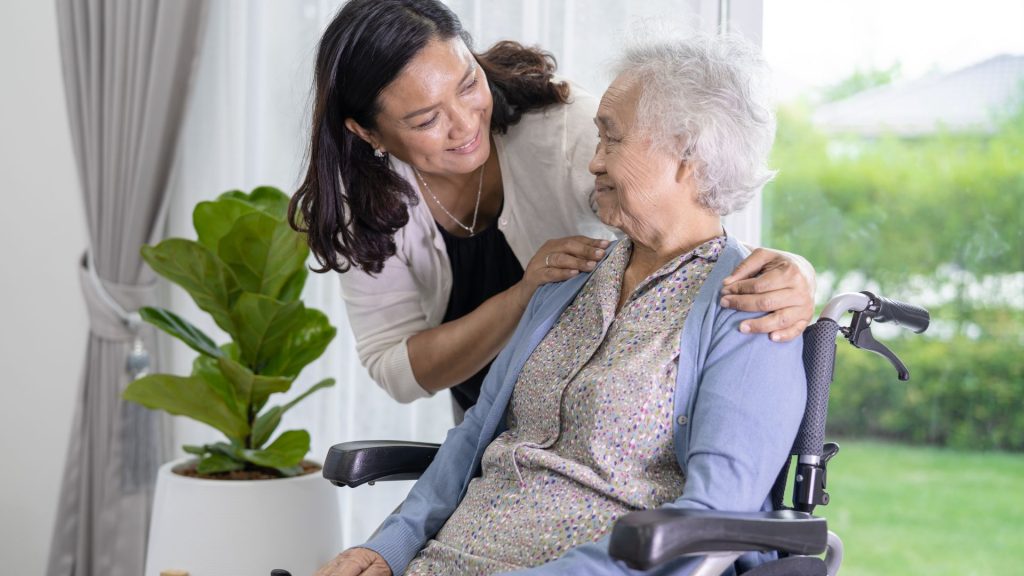
Comprehensive Disability Support: 10 Person-Centered Principles
Disability support refers to a range of services, assistance, and resources provided to individuals with disabilities to help them lead fulfilling, independent, and inclusive lives.
The base of all support is person-centered as far as disability is concerned. It follows the individualistic perspective of a disabled person who has preferences, goals, and needs that are unique and autonomous. Person-centered care is fundamentally different from standardized solutions, one size fits all.
This is where care is tailored with respect for an individual’s point of view.For people with disabilities, it means a great deal more than just meeting their physical needs; it involves the creation of an environment where they can be valued and enjoy fulfilling, happy lives. Indeed, there exist principles and guidelines that should follow with care providers and support organizations in their interactions and way of practices. As a matter of fact, let’s look at the seven guiding principles of the person-centered care practice in disability support
Respect for Dignity
Person-centered health care is the very basis of respect and dignity. It is the principle of respecting every individual, no matter their disabilities or abilities. This includes treating people with consideration and kindness while admiring their views.This can be put into action by the care providers, in their practice, by listening to the voices and needs of the people they support. You do not have to assume that a person may need or want something. You can always ask. You can provide them with options to enable their preferences, such as choices about daily routines.
Respect for dignity also includes privacy. If the individual needs support with intimate care procedures, dignity and discretion will put them at ease. Remember that dignified actions uplift people and allow them to feel respected, valued, and independent. Always address the person by their preferred name or title. Avoid patronizing or condescending terms and mannerisms.
Understanding cultural, religious, and personal beliefs will help you to avoid hurting someone’s feelings unintentionally.
Individualized Care
Individualized care is a kind of support that meets the specific needs, goals, and circumstances of each individual. Disability can be so different even for people with the same diagnosis; standardized approaches simply do not work. Planning individualized care ensures that every person’s system of support reflects the reality they are living in.
For example, a person with a vision impairment would benefit more from mobility training and assistive technologies, while if he or she were on the spectrum of autism, sensory-friendly activity would be best. It goes to show that the investment made in identifying these preferences and needs speaks volumes about the promise of personalized care.
Personalization involves frequent assessments and assessment of plans due to the ever-changing nature of conditions. An employee who accomplishes an objective such as being employed may be placed in a support plan which may involve planning for workplace adaptations or transport provision. Practical Implementation: The evaluation should always feature contributions and preference of the service user. A care plan should be constantly reassessed and changed for changing conditions.
Do not assume that a person’s diagnosis will identify their needs
Empowerment & Choice
This is the main principle of the person-centered approach since it provides an opportunity for people with disabilities to have control over their lives. This principle confirms that the right of the individual to choose, take risks, and be involved in his or her own support is respected.
The most insignificant decisions can empower them and help develop their independence. Letting them have their own choices of food, hobbies, and leisure times are all instances of self-determination. They can also take calculated risks when empowered. Of course, in care settings, the first priority will be safety, but in most cases, this needs to be weighed against the right to test things out for oneself and learn through experience.
Give people education and resources so that they are able to make themselves more capable. You can empower someone by teaching him how to budget and even claim his rights. Support workers can provide advice and assistance in decision making but cannot take the final call.
Applied Pratice
- Offer choices and inform them of what would happen as a result.
- Help the person share his aspirations and what he wants from life.
- Respect decisions, however bizarre they may seem, as long as they are made in the best interest for the individual.
“Explore our methods of empowering people with disabilities.”
Accessibility and inclusion
The principle of inclusion and accessibility seeks to provide equal opportunities for persons with disabilities to participate in society. The principle of accessibility and inclusion expands the concept of physical adjustment to include social, technological, and educational adjustment.
Accessible environments allow people to be active, to participate in activities, and to have access to resources. It is not just about installing ramps or making public transportation accessible. It also means making websites accessible for screen readers. Inclusion is about making sure that all people are welcomed into the community without discrimination or barriers.
Inclusion in society is as important as physical access. Inclusion will make sure that individuals with disabilities will not be made to feel like outsiders at school, in the workplace, or while playing. Inclusive events and activities are a powerful means of building social capital among participants.
Applied Practice
- Ensure the facility or service complies with the code requirements of accessibility.
- Promote awareness and an inclusive work environment through education for your community.
You can remove barriers by using assistive technology, such as screen magnifiers or a communications device.

Communication and collaboration
PPOs (Preferred Provider Organizations) collaborate to communicate and establish efficient support systems. This principle is about working with the individual, their family, caregivers, other professionals, and the person themselves in the development of comprehensive and coordinated care plans.
Transparence and openness in communication will now keep everybody in the know. For instance, the support recipient should be invited to active participation in a discussion in a meeting. Care providers must also hold confidentiality of information when communicating with family members. Sharing insights, progress, and challenges creates a trust-based partnership.
Working with other professionals from other disciplines is part of the collaboration process. They may include psychologists, educators, or occupational therapists. If a student has a learning disability, working with the teachers and ancillary personnel will provide a supportive environment to help them achieve their developmental goals.
Applied Practice:
- Attend regular meetings to discuss the care of the person, and involve them in this process.
- Encourage two-way communications by asking the person and his/her family for feedback or questions.
It is not one person’s job to care for a person; it is the team effort between him, his caregivers, families, and professionals. Collaboration allows a full support system reflecting the input and expertise of everyone.It is better to collaborate with the employer, family, teacher, and job coach when planning a transition from school to work for a young person with a disability. You can improve outcomes by collaborating.
Holistic Approach
Person-centered care is a holistic approach to the individual’s well-being: physical, mental, emotional, and social well being. This principle stresses that support should be directed to the wholeness of the individual rather than to a specific impairment.
Where others are truly committed to physical health, others feel that emotional health is equally important. This could be through counseling or recreational activities. Then there’s social connections. By inspiring a person to sustain friendships, establish a companionable relationship, or take part in any group activities, you can manage to help someone achieve a sense of belonging. All these elements make up well being.
Holistic care involves the identification of a person’s dreams, passions, and interests. For example, if the person is artistically gifted, it would be advised for them to attend art classes or engage in creative work that may give them meaning and fulfillment.
Applied Practice
- Provide access to a wide array of services such as: physical and mental health care, social inclusion, spiritual inclusion
- You can also provide recreational and community activities that the person enjoys.
- Support and appreciate life goals.
“Discover holistic approaches to care that consider the overall well-being of individuals.”
Constant Improvement
Person-centered health care is a dynamic and not a static process. This process demands the evaluation of continually improving care that is given for an individual’s changing needs to meet them accordingly. This constant improvement principle provokes caregivers to look at support practices and implement improvements in support.
It is always necessary to listen to what the customers say. A constant inquiry into customer feedback could point out areas that require change. People can express their opinions through surveys or interviews carried out in group homes.
Equally important is staff development and training to support staff. Caregivers who are conversant with the latest in technology, as well as best practices in disability care, can provide the best support. For example, learning the use of new communication tools can increase the interaction with a non-verbal individual.
Applied Practice
- The plan of care should be reviewed periodically by the person receiving care and the staff.
- Encourage the caregivers to get ongoing training and education.
- Improve your business through feedback.
Building Trusting Relations
Trust is the starting point of any good relationship. And it goes just the same when it comes to caregiver. Most individuals with a disability have been demeaned and talked down to with regard to their feelings, thoughts, and opinions. A trusting relationship requires time along with consistency.
A punctual, attentive, not interruptive, promise-keeping caregiver earns trust. This will enable the person to communicate more freely; they will be willing to share thoughts, feelings, and ideas.
Be flexible and adaptable
Nobody can predict the future, and life does not always go according to a plan. It is particularly true in the field of disability support, where the needs of people change and develop over time.
Adaptability ensures the care is effective and relevant. For instance, if a person loves being outdoors but then has an issue of mobility, consider wheelchair-accessible hiking or virtual nature tours. To adapt to changes, you have to be open-minded and responsive at all.

Respect for Cultural Diversity
It is important not to ignore the culture, tradition, and values of each client. The person-centered approach includes respect for cultural backgrounds.
You can increase the happiness and sense of belonging of the person by bringing the values of his or her culture into the care plan. Cultural sensitivity supports person-centered care that is respectful and consistent with the resident’s perspective.
FAQs
What is person-centered health care?
It is a way of providing person-centered care by prioritizing first the specific needs, preferences, and goals of the individual in each decision. Person-centered care puts the individual’s values and strengths at the forefront of every decision, not just limitations or one-size fits all.
Why do individuals need emphasis in person-centered health care?
Everybody has different goals, experiences, and preferences. When we recognize individuality, the care provided is channeled toward a person’s unique interests and needs, helping them to lead a richer and more fulfilling life. It’s about supporting and recognizing the person as a whole-not only his or her disability.
How does focusing strengths benefit people with disabilities?
From this, one is in a position to realize self-confidence while offering much contribution to society with them. As long as you are artistic, you have the opportunity of expressing yourself and make it be a job rather than letting life be controlled according to your challenges or limitation.
Why is such care so important towards dignity and human rights?
Everyone deserves respect, regardless of disabilities. This means that communication should be respectful; opinions should be valued, and it’s a consideration even when decisions are not just about theirs.
Someone should feel valued if dignity and respect are abundant.
Is person-centered care is available only to people with disabilities?
Not at all. Even if this blog remains primarily about the person-centered care of people with a disability and of their families, principles of respect, individuality, independence, and cooperation will definitely promote good care practices well beyond elder care and healthcare all the way up into education.
Conclusion
Person-centered caring is much more than just support. It’s an opportunity that allows people to lead an enriched and dignified lifestyle which expresses who they are.
Care providers will create supportive environments that include people with disability for them to live life at its best if the seven core principles encompassing the entire present framework are observed, such as Respect, Dignity and Individualized Care; Empowerment and Choice; Accessibility and Integration; Collaboration and Communication; Holistic Approach and Continuous Improvement.
Such principles can be utilized by care giving teams as well as societies interested in creating a world where all individuals are valued and respected.



